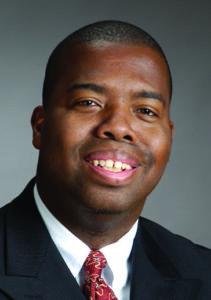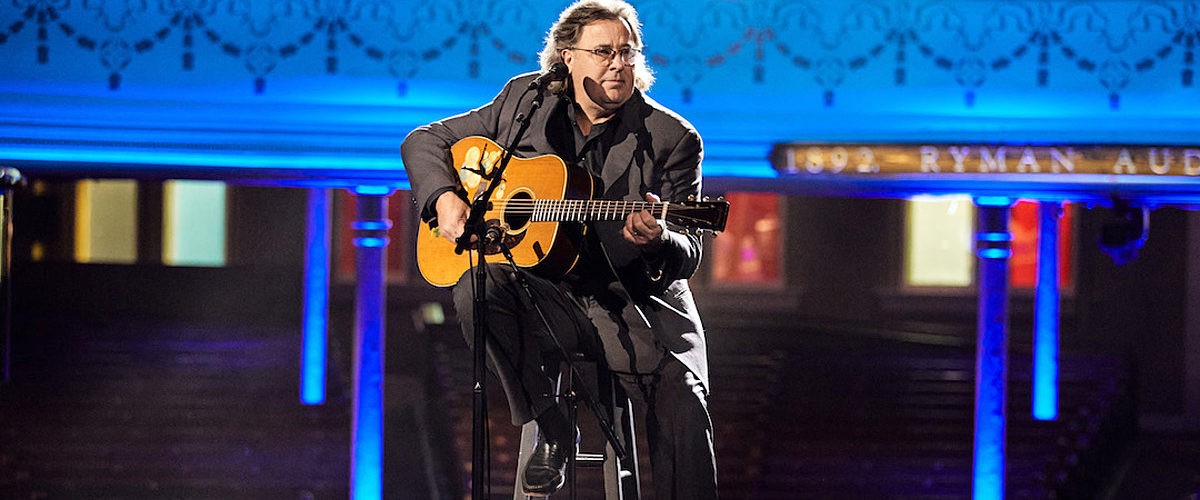A few months ago, if you had told me I would be talking with Vince Gill about race, I would have laughed you out of the room. For starters, I am a huge fan of Vince and his wife, Christian artist and singer Amy Grant. While a conversation about music and faith was expected, a conversation on race, not so much. But that’s what happened.
I’d recently seen an interview with Vince regarding his song March On. I wanted to learn more about him, discuss the sensitive issue of race, and hear how we can be bridge builders. March On seems a bit of a response to the current climate surrounding race and equality in America. It appears to be a responding voice from country music to this current social conversation.
Within the song, Gill boldly sings: “400 years of history couldn’t be more wrong. A reckoning is coming. March on, march on.”
Those are strong words from a white guy.

Maina Mwaura
When Vince walked in, and I sat down for our interview at the African American Music Museum, it seemed a surprising place for me, as a Black man, to sit and talk with a white country music artist. But this isn’t unusual for Vince. He co-chairs one of the museum’s committees.
When Vince entered, it was apparent that he not only loves the museum but he has a deep appreciation for it. He is comfortable talking about race because it’s an issue he believes he’s settled in his heart.
“I think most people know me as a pretty open-minded fellow,” he self-prescribed.
And I had to ask myself: As a Christian, am I keeping an open mind? We need to think about race with this open mind and understand that we’ve been created in the image of God. That God didn’t create us all to be the same. Through this open mind, we build relationships with others. It opens up experiences with people who don’t look like us.
Vince shared about being the first white male on Jet magazine’s cover: “I think one of my proudest accomplishments was being the first white guy on the cover of Jet magazine, with Gladys Knight. My father was very proud of me when he was alive for that accomplishment.”
Hold up. Vince’s dad. This white country singing dude’s dad is happy he’s on the cover of Jet magazine? Let me stop right here for a minute. That’s dope. Maybe open minds are generational. So, if you’re a parent, please acknowledge when your child steps out of their cultural box, just like Vince’s dad did.
“This white country singing dude’s dad is happy he’s on the cover of Jet magazine?”
Once we find an open mind, let’s drop the judgment. That doesn’t come as easily with these open minds. We all have placed judgment on things we knew nothing about. The closed mind sufficiently hasn’t experienced life outside its cultural or racial bubble, and therefore, the judging exposes itself.
“I think conversation has to happen,” Vince said. “I think for a long time, it didn’t. Because it was uncomfortable. Conversation can be beneficial if it’s non-judgmental. Sadly, too often, the conversation is someone trying to get you to see things the way they do.”
Conversation has to happen. Judgment builds barriers. The open mind helps construct a bridge with people who don’t look like us. Conversation is key.
Vince kept sharing interesting thoughts.
“There are several things that, when having a conversation on race, you don’t want it to be. You don’t want it to be judgmental. You don’t want it to be preachy. You don’t want it to be accusatory. You don’t want it to be a lot of things. It’s OK if you tell the truth, but you do it in a way that doesn’t shame someone.”
Maybe sometimes not speaking and just listening may be more important than to just “tell the truth.”
Vince is working toward building bridges on issues such as race, just like Jesus did with Nathanial.
Nathanial and Jesus were having a direct conversation on the issue of race. Nathanial was questioning following Jesus based upon where Jesus was from, Nazareth. Nathanial’s racial conditioning disallowed this type of relationship with Jesus. Jesus challenged Nathanial’s biases but also shared that he is an “honest man.” Jesus was respectful of Nathaniel.
“In the song, Vince aims to pay tribute to the many civil rights leaders that have worked hard in building bridges on race, who have gone before us.”
Jesus didn’t shame Nathaniel. Alas, often, we don’t do likewise.
March On was written while reflecting the racial tension heightened in our country after the George Floyd murder. In the song, Vince aims to pay tribute to the many civil rights leaders that have worked hard in building bridges on race, who have gone before us. It seems to be an effort toward an honest conversation that stems from the open mind of a white country artist. I applaud him for pushing his talents and heart into the dialogue.
I think Vince is an honest man.
“400 years of history couldn’t be more wrong. A reckoning is coming. March on, march on.”
“Preach on brothers. Sisters stay strong. The hearts are changing so, March on, march on.”
In the Bible, Nathanial seemed able to open his mind, to put his judgments aside, to engage in conversation, to follow this Jesus. To march on and change the world.
This white country music singer who sat to talk with me in the African American Music Museum is pretty open-minded. And this allows him to put a new message into his music. A message to challenge racial prejudices in a genre and culture of music that most likely would find a new message about race problematic.
Vince said during our conversation, “I’ve lived my life with my ears and not my eyes.”
And, I would add, an open mind.
Maina Mwaura is a freelance writer and communications consultant who lives in the metro Atlanta area. A native of Orlando, Fla., he earned a bachelor of science degree in communications from Liberty University and a master of divinity degree from New Orleans Baptist Theological Seminary.
Related articles:
Mitch Albom: ‘God can answer your prayers sometimes with something that breaks your heart’
One of America’s favorite Christian authors finally tells his own story
Raised a Baptist, Lance Bass feared who he was couldn’t be in sync with his faith


